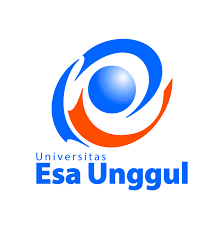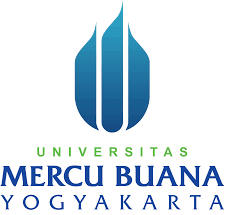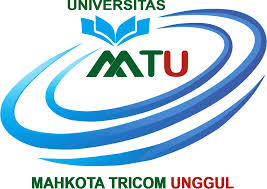Does Financial Technology and Financial Literacy Enhance Financial Inclusion? (Evidence from Several Countries)
DOI:
https://doi.org/10.55927/eajmr.v2i12.6905Keywords:
Financial Technology, Financial Literacy, Digital Finance, Financial Inclusion, Financial ServicesAbstract
This research aims to examine whether there is a relationship between financial literacy and financial technology with financial inclusion. Financial literacy in this context encompasses aspects of knowledge, skills, financial aspects, financial management, and access to financial knowledge. Meanwhile, financial technology includes digital financial services, financial behavioral intentions, and digital financial access. Financial inclusion covers financial stability, financial services, and digital finance. The methodology used in this research is qualitative research using literature studies, which include samples and data from 96 reputable international journals. The research was conducted from October until completion. The results of this study indicate that financial literacy and financial technology have a significant influence on financial inclusion.
References
Alawi, N. M., Asih, V. S. and Sobana, D. H.(2020) ‘Pengaruh Literasi Keuangan dan Inklusi Mahasiswa UIN Sunan Gunung Djati Bandung Terhadap Penggunaan Sistem Financial Technology’, Jurnal Maps (Manajemen Perbankan Syariah), 4(1), pp. 36–44. doi: 10.32483/maps.v4i1.48
Allen, Franklin, Asli Demirguc-Kunt, Leora Klapper and Maria Soledad Martinez Peria (2016), The Foundations of Financial Inclusion: Understanding Ownership and Use of Formal Accounts, Journal of Financial Intermediation, 27, 1-30
Asandimitra, N., & Kautsar, A. (2019). The influence of financial information, financial self efficacy, and emotional intelligence to financial management behavior of female lecturer. Humanities and Social Sciences Reviews, 7(6), 1112–1124. https://doi.org/10.18510/hssr.2019.76160
Baker, H.K., Kumar, S. and Pandey, N. (2020a), “A bibliometric analysis of managerial finance: a retrospective”, Managerial Finance, Vol. 46 No. 11, pp. 1495-1517.
Baker, H.K., Kumar, S. and Pattnaik, D. (2020b), “Fifty years of the financial review: a bibliometric overview”, Financial Review, Vol. 55 No. 1, pp. 7-24
Banna, H., Mia, M. A., Nourani, M., & Yarovaya, L. (2022). Fintech-based Financial Inclusion and Risk-taking of Microfinance Institutions (MFIs): Evidence from Sub-Saharan Africa. Finance Research Letters, 45(May), 102149. https://doi.org/10.1016/j.frl.2021.102149
Brika, S. K. M. (2022). A Bibliometric Analysis of Fintech Trends and Digital Finance. Frontiers in Environmental Science, 9(January), 1–10. https://doi.org/10.3389/fenvs.2021.796495
Cole, Shawn, Thomas Sampson and Bilal Zia (2011), Price or Knowledge? What Drives Demand for Financial Services in Emerging Markets? Journal of Finance, 66(6), 1933- 1967.
Davis, F. D. (1989). Perceived usefulness, perceived ease of use, and user acceptance of information technology. MIS Quarterly, 13(3), 319e339
Doi, Yoko, David McKenzie, and Bilal Zia (2014), Who You Train Matters: Identifying Combined Effects of Financial Education on Migrant Households, Journal of Development Economics, 109, 39-55.
Dunia, P., Grohmann, A., & Klü, T. (2018). Apakah literasi keuangan meningkatkan inklusi keuangan ? Bukti lintas negara Apakah Literasi Keuangan Meningkatkan Inklusi Keuangan ? Bukti Lintas Negara.
Erlianta, N. R., & Lupikawaty, M. (2021). The Effect of Financial Technology on Financial Inclusion SMEs in Palembang City. Atlantis Press, 1(1), 84–88.
Farida, M. N., Soesatyo, Y. and Aji, T. S. (2021) ‘Influence of Financial Literacy and Use of Financial Technology on Financial Satisfaction through Financial Behavior’, International Journal of Education and Literacy Studies, 9(1), p. 86. doi:10.7575/aiac.ijels.v.9n.1p.86.
IFC. (2017). How FinTech is reaching the poor in Africa and Asia: A start-up perspective. Washington, DC: World Bank Group. Note 34 March 2017, International Finance Corporation
Iskandar, D. (2019) ‘The Use of The Financial Technology (Fintech) System is Reviewed from Society Perception : Attiude, Interest, Motivation, Experience & Hope’, EPRAInternational Journal of Multidisciplinary Research, 5(June), pp. 138–148
Jamison, Julian C., Dean Karlan, and Jonathan Zinman (2014), Financial Education and Access to Savings Accounts: Complements or Substitutes? Evidence from Ugandan Youth Clubs, NBER Working Paper, No. 20135.
Kerthayasa, I. W., & Darmayanti, N. P. A. (2023). Pengaruh Literasi Keuangan Dan Financial Technology Terhadap Inklusi Keuangan Di Desa Pengotan. E-Jurnal Manajemen Universitas Udayana, 12(2), 137. https://doi.org/10.24843/ejmunud.2023.v12.i02.p02
Khan, A., Hassan, M.K., Paltrinieri, A., Dreassi, A. and Bahoo, S. (2020), “A bibliometric review of takaful literature”, International Review of Economics and Finance, Vol. 69, pp. 389-405.
Klapper, Leora, Annamaria Lusardi and Peter van Oudheusden (2015), Financial Literacy around the World: Insights from the Standards and Poor’s Ratings Service Global Financial Literacy Survey, https://www.finlit.mhfi.com.
Klapper, Leora, Mayada El-Zoghbi, and Jake Hess (2016), Achieving the Sustainable Development Goals – The Role of Financial Inclusion, CGAP Working Paper.
Levine, R., Zervos, S. Stock Markets, Banks, and Economic Growth. The American Economic Review, Vol.88 (3) (1998): 537 – 558
Lewbel, Arthur (2012), Using Heteroscedasticity to Identify and Estimate Mismeasured and Endogenous Regressor Models, Journal of Business and Economic Statistics, 30, 67- 80.
Lusardi, Annamaria and Olivia S. Mitchell (2014), The Economic Importance of Financial Literacy: Theory and Evidence, Journal of Economic Literature, 52(1), 5-44
Makina, D. (2019). The Potential of FinTech in Enabling Financial Inclusion. In Extending Financial Inclusion in Africa. Elsevier Inc. https://doi.org/10.1016/B978-0-12-814164-9.00014-1
Morgan, P. J., & Long, T. Q. (2020). Financial literacy, financial inclusion, and savings behavior in Laos. Journal of Asian Economics, 68, 101197. https://doi.org/10.1016/j.asieco.2020.101197
Morgan, P. J., & Long, T. Q. (2020). Financial literacy, financial inclusion, and savings behavior in Laos. Journal of Asian Economics, 68, 101197. https://doi.org/10.1016/j.asieco.2020.101197
Morgan, P. J., Huang, B., & Trinh, L. Q. (2019). The need to promote digital financial literacy for the digital age. IN THE DIGITAL AGE
Noor, M., Fourqoniah, F. and Aransyah, M. F. (2020) ‘Investigation of financial inclusions, financial literation, and financial technology in Indonesia’, Jurnal Perspektif Pembiayaan dan Pembangunan Daerah, 8(3), pp. 257–268. https://doi.org/10.22437/ppd.v8i3.9942
Ozili, P. K. (2023). Determinants of interest in eNaira and financial inclusion information in Nigeria: role of FinTech, cryptocurrency and central bank digital currency. Digital Transformation and Society, 2(2), 202–214. https://doi.org/10.1108/dts-08-2022-0040
Prawirasasra, K. P. (2018) ‘Financial technology in Indonesia: disruptive or collaborative?’, Reports on Economics and Finance, 4(2), pp. 83–90. doi: 10.12988/ref.2018.818.
Romadhon, I. A., & Rahmadi, H. (2020). The Effect of Financial Literacy and Financial Technology on Student Financial Inclusion of Institute of Social Sciences and Management Stiami Jakarta Bekasi Campus. Neraca : Jurnal Akuntansi Terapan, 2(1), 16–27. https://doi.org/10.31334/neraca.v2i1.1100
Santoso, W. et al.(2020) ‘Talent mapping: a strategic approach toward digitalization initiatives in the banking and financial technology (FinTech) industry in Indonesia’, Journal of Science and Technology Policy Management, 12(3), pp. 399–420. doi: 10.1108/JSTPM-04-2020-0075.
Saraswati, B. D. et al.(2020) ‘The effect of financial inclusion and financial technology on effectiveness of the Indonesian monetary policy’, Business: Theory and Practice, 21(1), pp. 230–243. doi: 10.3846/BTP.2020.10396
Sari, A. N., & Kautsar, A. (2020). Analisis Pengaruh Literasi Keuangan, Financial Technology, dan Demografi Terhadap Inklusi Keuangan Pada Pengguna Di Kota Surabaya. Jurnal Ilmu Manajemen, 8(4), 1233–1246.
Sari, D. E., Selviana, E. A., Brilliani, Asila, N. F., & Jannah, M. (2022). The Effect of Financial Literature and Financial Technology on Financial Inclusion Among Accounting Student. International Journal of Social Science and Business, 6(3), 310–315. https://doi.org/10.23887/ijssb.v6i3.40508
Senou, M. M., Ouattara, W., & Acclassato Houensou, D. (2019). Financial inclusion dynamics in WAEMU: Was digital technology the missing piece? Cogent Economics & Finance, 7(1), 1-16
Shen, Y., Hu, W., & Hueng, C. J. (2018). The effects of financial literacy, digital financial product usage and internet usage on financial inclusion in China. MATEC Web of Conferences, 228. https://doi.org/10.1051/matecconf/201822805012
State Council. Plan for Advancing the Development of Financial Inclusion (2016-2020), http://pubdocs.worldbank.org/en/335801453407732220/ENGLISH-Advancing-Financial-Inclusion-in-China-Five-Year-Plan-2016-2020.pdf, accessed october 28, 2023
Sundarasen, S., Rajagopalan, U., Kanapathy, M., & Kamaludin, K. (2023). Women's financial literacy: A bibliometric study on current research and future direction. https://doi.org/10.1016/j.heliyon.2023.e21379
Survei Nasional Literasi dan Inklusi Keuangan Tahun. (22 November 2022): ojk.go.id. https://www.ojk.go.id/id/berita-dan-kegiatan/siaran-pers/Pages/Survei-Nasional-Literasi-dan-Inklusi-Keuangan-Tahun-2022.aspx
Sy, Amadou N, Maino, Rodolfo, Massara, Alexander, Perez-Saiz, Hector, Sharma, Preya, 2019. FinTech in Sub-Saharan African Countries; A Game Changer? Retrieved from. https://www.imf.org/en/Publications/Departmental-Papers-Policy-Papers/Issues/2019/02/13/FinTech-in-Sub-Saharan-African-Countries-A-GameChanger-46376.
Van Eck, N., & Waltman, L. (2010). Software survey: VOSviewer, a computer program for bibliometric mapping. scientometrics, 84(2), 523-538.
Downloads
Published
How to Cite
Issue
Section
License
Copyright (c) 2023 Fenti Fitriani, Fitri Santi

This work is licensed under a Creative Commons Attribution 4.0 International License.











.png)






















